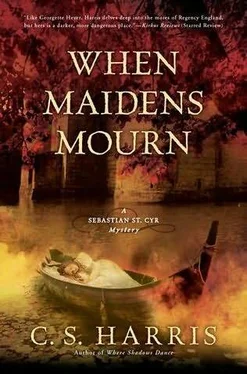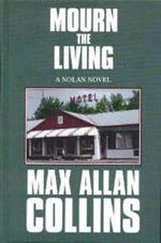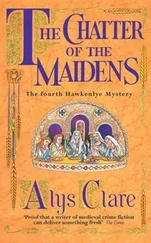C Harris - When maidens mourn
Здесь есть возможность читать онлайн «C Harris - When maidens mourn» весь текст электронной книги совершенно бесплатно (целиком полную версию без сокращений). В некоторых случаях можно слушать аудио, скачать через торрент в формате fb2 и присутствует краткое содержание. Жанр: Классический детектив, на английском языке. Описание произведения, (предисловие) а так же отзывы посетителей доступны на портале библиотеки ЛибКат.
- Название:When maidens mourn
- Автор:
- Жанр:
- Год:неизвестен
- ISBN:нет данных
- Рейтинг книги:5 / 5. Голосов: 1
-
Избранное:Добавить в избранное
- Отзывы:
-
Ваша оценка:
- 100
- 1
- 2
- 3
- 4
- 5
When maidens mourn: краткое содержание, описание и аннотация
Предлагаем к чтению аннотацию, описание, краткое содержание или предисловие (зависит от того, что написал сам автор книги «When maidens mourn»). Если вы не нашли необходимую информацию о книге — напишите в комментариях, мы постараемся отыскать её.
When maidens mourn — читать онлайн бесплатно полную книгу (весь текст) целиком
Ниже представлен текст книги, разбитый по страницам. Система сохранения места последней прочитанной страницы, позволяет с удобством читать онлайн бесплатно книгу «When maidens mourn», без необходимости каждый раз заново искать на чём Вы остановились. Поставьте закладку, и сможете в любой момент перейти на страницу, на которой закончили чтение.
Интервал:
Закладка:
`Well? Were you?'
They walked along in silence, the sun warm on their backs, the golden light of the afternoon drenching the green of the grass and trees around them. Just when Sebastian had decided the Frenchman wasn't going to answer, he said softly, `Of course I was. At least a little. Who wouldn't be? She was a very beautiful woman, brilliant and courageous and overflowing with a zest for life. While I...' His voice broke and he had to swallow hard before he could continue. `I have been very lonely, here in England.'
`Was she in love with you?'
`Oh, no. There was nothing like that between us. We were friends, fellow scholars. Nothing more.'
Sebastian studied the Frenchman's lean profile. He had softly curling brown hair and a sprinkling of cinnamon-colored freckles high across his cheeks that gave him something of the look of a schoolboy. At the moment, the freckles were underlaid by a faint, betraying flush.
`When did you last see her?' Sebastian asked.
`Wednesday evening, I believe it was. She used to bring her young cousins here, to the park, to sail their boats on the Serpentine. I would meet them sometimes. The boys liked to play with Chien.'
Sebastian glanced over at the brown and black mongrel, now loping methodically from tree to tree in a good-natured effort to mark all of Hyde Park as his own personal territory. `Chien? That's his name?' Chien was simply the French word for dog.
`I thought if I gave him a name, I might become too attached to him.'
The dog came bounding back to the young lieutenant, tail wagging, brown eyes luminous with adoration, and the Lieutenant hunkered down to ruffle the fur around his neck. The dog licked his wrist and then trotted off again happily.
`Looks as if that's working out well,' observed Sebastian.
Arceneaux laughed again and pushed to his feet. `He used to live in the wasteland near that new bridge they're building. I go there sometimes to sit at the end overlooking the river and watch the tide roll in and out. He would come sit beside me. And then one day just before curfew, when I got up to leave, he came too. Unfortunately, he has a sad taste for the low life, particularly Gypsies. And a shocking tendency to steal hams. George used to say I should have called him Rom, because he is a Gypsy at heart.'
The Lieutenant watched the dog roll in the grass near the water's edge and his features hardened into grim lines. After a moment, he said, `Do you think George and Alfred are dead too?'
`They may be. Or they could simply have been frightened by what happened to their cousin and run away to hide.'
`But the authorities are looking for them, yes? And Gabrielle's brother has offered a reward. If that were true, why have they not been found?'
Sebastian could think of several explanations that made perfect sense, although he wasn't inclined to voice them. Small boys were a valuable commodity in England, frequently sold as climbing boys by the parish workhouses or even by their own impoverished parents. The chimney sweeps were in constant need of new boys, for the work was brutal and dangerous. Even boys who survived eventually outgrew the task. It wasn't unknown for small children to be snatched from their front gardens and sold to sweeps. Very few of those children ever made it home again.
But the chimney sweeps weren't the only ones who preyed on young children; girls and boys both were exploited for sexual purposes, the very thought of which made Sebastian's stomach clench. He suspected the trade in children was a contributing factor to Tennyson's decision to ignore the concerns of the magistrates and post a reward for the boys return. Then he noticed the way the Lieutenant's jaw had tightened, and he knew the Frenchman's thoughts were probably running in the same direction.
Sebastian breathed in the warm, stagnant aroma of the canal, the sunbaked earth, the sweet scent of the lilies blooming near the shadows of the trees. He said, `Did Miss Tennyson seem troubled in any way the last time you saw her?'
`Troubled? No.'
`Would you by any chance know how she planned to spend this past Sunday afternoon?'
`Sorry, no.'
Sebastian glanced over at him. `She didn't speak of it?'
`Not that I recall, no.'
`Yet you did sometimes see her on Sundays, did you not?'
Arceneaux was silent for a moment, obviously considering his answer with care. He decided to go with honesty. `Sometimes, yes.'
`Where would you go?'
A muscle worked along the Frenchman's jaw as he stared out over the undulating parkland and shrugged. `Here and there.'
`You went up to Camlet Moat a week ago last Sunday, didn t you?
Arceneaux kept his face half averted, but Sebastian saw his throat work as he swallowed.
One of the conditions of a prisoner's parole was the requirement that he not withdraw beyond certain narrowly prescribed boundaries. By traveling up to Camlet Moat, the Frenchman had violated his parole. Sebastian wondered why he had taken such a risk. But he also understood how frustration could sometimes lead a man to do foolish things.
`I have no intention of reporting you to the Admiralty, if that's what you re worried about,' said Sebastian.
`I didn't kill her,' said Arceneaux suddenly, his voice rough with emotion. `You must believe me. I had no reason to kill any of them.'
Some might consider unrequited love a very common motive for murder. But Sebastian kept that observation to himself. `Who do you think would have a reason to kill them?'
Arceneaux hesitated, the wind ruffling the soft brown curls around his face. He said, `How much do you know about Camlet Moat?'
`I know that Miss Tennyson believed it the lost location of Arthur's Camelot. Do you?'
`I will admit that when I first heard the suggestion, it seemed laughable. But in the end I found her arguments profoundly compelling. The thing is, you see, our image of Camelot has been molded by the writings of the troubadours. We picture it as a fairy-tale place - a grand medieval castle and great city of grace and beauty. But the real Camelot if it existed at all would have been far less grand and magnificent. There is no denying that Camlet Moat's name is indeed a recent corruption of Camelot. And it is an ancient site with royal connections that remained important down through the ages.'
`One wouldn't think so to look at the island today.'
`That's because the medieval castle that once stood there was completely razed by the Earl of Essex in the fifteenth century, its stones and timbers sold to help finance repairs to the Earl's family seat at Hertford.'
Sebastian frowned. `I thought the site belonged to the Crown.'
`It has, off and on. But it was for several centuries in the possession of the descendants of Sir Geoffrey de Mandeville.'
Every schoolboy in England was familiar with Sir Geoffrey de Mandeville, one of the most notorious of the robber barons spawned by the chaos of the twelfth century, when William the Conqueror's grandchildren Matilda and Stephen did their best to turn England into a wasteland in their battle for the throne. Accumulating a band of black knights, de Mandeville pillaged and looted from Cambridge to Ely to the Abby of Ramsey; the treasure he amassed in the course of his bloody career - a king's ransom in gold and coins and precious gems - had reportedly never been found.
`There is a legend,' said Arceneaux, that de Mandeville buried his treasure at Camlet Moat. They say that when he was attained for high treason, he hid on the island in a hollow oak tree overhanging a well. The tree broke beneath his weight, and he fell into the well and drowned. Now his ghost haunts the island, guarding his treasure and reappearing to bring death to anyone who would dare lay hands upon it.'
`Don't tell me you believe this nonsense?'
Читать дальшеИнтервал:
Закладка:
Похожие книги на «When maidens mourn»
Представляем Вашему вниманию похожие книги на «When maidens mourn» списком для выбора. Мы отобрали схожую по названию и смыслу литературу в надежде предоставить читателям больше вариантов отыскать новые, интересные, ещё непрочитанные произведения.
Обсуждение, отзывы о книге «When maidens mourn» и просто собственные мнения читателей. Оставьте ваши комментарии, напишите, что Вы думаете о произведении, его смысле или главных героях. Укажите что конкретно понравилось, а что нет, и почему Вы так считаете.












